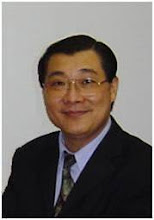 Dear CQE Friends,
Dear CQE Friends,Below please find some related information to The Father of TQM - Dr. Armand Vallin Feigenbaum.
Armand Vallin Feigenbaum (born 1922) is an American quality control expert and businessman. He devised the concept of Total Quality Control, later known as Total Quality Management (TQM).
Feigenbaum received a bachelor's degree from Union College, and his master's degree and Ph.D. from MIT. He was Director of Manufacturing Operations at General Electric (1958-1968), and is now President and CEO of General Systems Company of Pittsfield, Massachusetts, an engineering firm that designs and installs operational systems. Feigenbaum wrote several books and served as President of the American Society for Quality (1961-1963).
His contributions to the quality body of knowledge include:
- "Total quality control is an effective system for integrating the quality development, quality maintenance, and quality improvement efforts of the various groups in an organization so as to enable production and service at the most economical levels which allow full customer satisfaction."
- The concept of a "hidden" plant—the idea that so much extra work is performed in correcting mistakes that there is effectively a hidden plant within any factory.
- Accountability for quality: Because quality is everybody's job, it may become nobody's job—the idea that quality must be actively managed and have visibility at the highest levels of management.
- The concept of quality costs
Awards and honors
- First recipient of ASQ's Lancaster Award
- ASQ 1965 Edwards Medal in recognition of "his origination and implementation of basic foundations for modern quality control"
- National Security Industrial Association Award of Merit
- Member of the Advisory Group of the U.S. Army
- Chairman of a system-wide evaluation of quality assurance activities of the Army Materiel Command
- Consultant with the Industrial College of the Armed Forces
- Union College Founders Medal
- Fellow of the American Association for the Advancement of Science
- Life member of the Institute of Electrical and Electronics Engineers
- Life member of the American Society of Mechanical Engineers
- Life member of Plymouth Society of Marine Biology
Enjoy reading!
Welcome any comments.
Best regards,
Eddie Kuang
E : kuangkh@gmail.com or kuangkh@streamyx.com
M : +6012-505 2720
T : +605-805 2722
F : +605-805 2721
B : http://cqeblog.blogspot.com/
http://asqcssbb.blogspot.com/
http://cmqoe.blogspot.com/
W : http://www.cqetraining.com/








